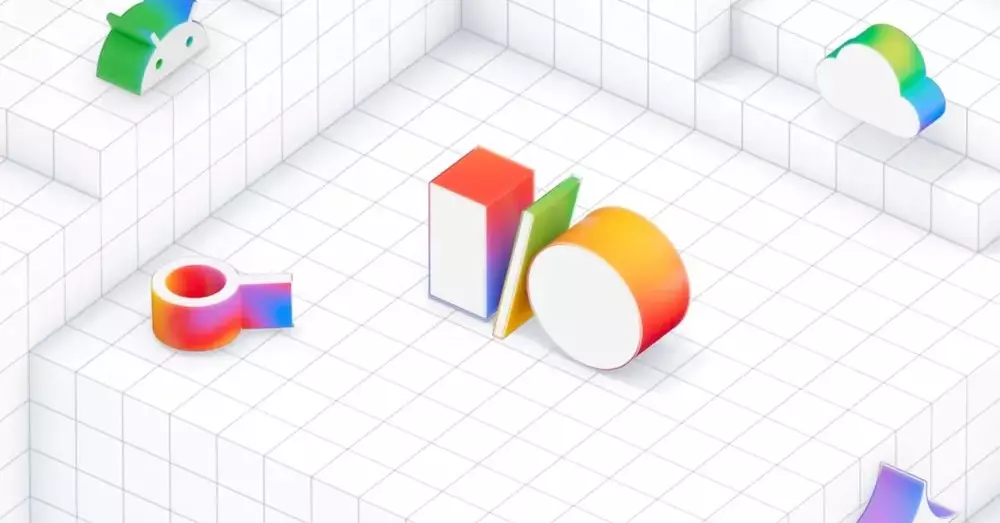As anticipation builds for Google’s upcoming I/O developer conference, tech enthusiasts are bracing themselves for a transformative experience.Held annually, this year’s event is set against a backdrop of innovation, excitement, and perhaps, a hint of cautious optimism. While many have their eyes set on potential groundbreaking announcements, it’s clear that AI will take center stage during the keynote presentation, overshadowing other technologies like Android OS. This shift reveals Google’s strategic pivot, reflecting not only the company’s current priorities but also the broader technological landscape where artificial intelligence is becoming an indispensable force.
AI: The Heart of Google’s Strategy
The impending focus on AI is not only unsurprising but also indicative of the fierce competition in the tech industry. Google’s AI advancements have been a recurring theme in previous years, particularly with initiatives like Gemini, which have captured the spotlight. As tech giants battle for supremacy—most notably against rivals like OpenAI, Meta, and Microsoft—Google’s I/O is poised to showcase innovations that promise to redefine human-computer interaction. From enhanced AI features optimized for a variety of devices to potentially transformative projects like Project Astra, Google is likely to unveil developments that may offer a glimpse into our tech-driven future.
This year’s I/O keynote is not just a platform for announcements but a battleground for ideas and capabilities. Many expect Google to highlight its position in the AI landscape, announcing features that could transcend the current limits of technology. For instance, integrating advanced machine learning capabilities into everyday applications promises to make a profound impact on user experience. The juxtaposition of Google’s innovations against Microsoft’s recent Build developer event emphasizes the competitive nature of this race. Tech enthusiasts will undoubtedly be eager to dissect the advancements presented at I/O to gauge how they stack up against their competition.
Beyond AI: The Emerging Realm of Extended Reality
While AI is expected to dominate the conversation at I/O, Google’s commitment to extended reality (XR) shouldn’t be overlooked. The intersection of AI and XR offers tantalizing possibilities, and Google is poised to explore this synergy. Rumors suggest that the keynote will include discussions surrounding Android XR, which has been relatively muted in recent discourse. Nonetheless, this year presents an opportunity for Google to delve deeper into its ambitious XR projects, particularly with the anticipated reveal of prototype smart glasses.
As other companies, like Samsung, gear up to introduce XR hardware, Google finds itself at a crucial juncture. It needs to leverage the I/O conference as a platform to solidify its place in the XR domain, showcasing software developments that can complement emerging hardware. Given that XR technology has yet to achieve mass-market penetration, Google’s explorations into this field could be the defining factor that elevates XR from niche interest to mainstream acceptance. Developers and consumers alike are eager for innovations that promise a seamless blend of the digital and physical worlds.
The Direction of Consumer Hardware Announcements
Interestingly, many tech enthusiasts are lamenting a perceived decline in significant hardware announcements from Google. In recent years, I/O has traditionally been a stage for unveiling products like Pixel phones and Nest devices. However, the trend appears to be shifting. With Google opting to reveal its hardware initiatives through different channels, the I/O conference is likely to remain focused on software advancements and the integration of AI and XR technologies.
This not only reflects a strategic decision but also hints at a deeper understanding of consumer priorities. Users today are increasingly drawn to the capabilities that software can offer rather than merely seeking new gadgets. The expectation is that Google will continue to prioritize experiences enhanced by AI, rather than simply churning out hardware that may not resonate with today’s tech-savvy audience.
Indeed, this year’s I/O could signal Google’s intent to harness the immense power of AI and XR to create experiences that resonate with users on a deeper level, ushering in a new chapter of technological innovation that could redefine daily life. The boundary between what technology can do and what users want it to do is rapidly blur, and Google seems ready to explore this potential at I/O.


Leave a Reply